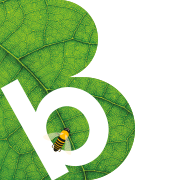and so is your baby

Great nutrition for pregnancy and while you’re breastfeeding
By Sally J Hall
Your body is amazing. Not only can it grow a whole person from a bunch of cells into a fully formed baby in nine months, it can also feed that baby exclusively for the next six. It provides excellent nutrition, at the right time, consistency and temperature until you start to wean at six months. So how do you ensure that you are getting all you need from your diet during pregnancy and beyond?
Balanced diet
Though you shouldn’t need to change your diet drastically when pregnant and while breastfeeding, it’s a good time to make sure you get a really good and varied diet. After all, what you eat during those nine precious months has a direct impact on your baby’s health.
Though most doctors and nutritionists would say that eating a variety of foods will keep you healthy, between morning sickness, sleepless nights and busy days, it can sometimes be hard to ensure you get time to eat properly at all, let alone prepare and eat a meal packed with all the right vitamins and minerals.
Try to include each day:
- Carbohydrates; bread, rice, pasta and potatoes. You’ll really need this to keep up energy levels in pregnancy and while breastfeeding, even if you would usually opt for a low-carb diet. Try to choose wholegrain and brown versions for extra fibre, as constipation can be a problem for new mums.
- Lots of fruit and veg in a rainbow of colours. Some of this should be raw – perhaps as juices and smoothies. Try to eat as many varieties as possible to get a good range of vitamins and use methods of cooking that preserve nutrients, such as steaming and stir fries. Look for hard-to-get nutrients like iron and calcium in leafy green vegetables, legumes and soya products.
- Protein – lean meat, poultry, eggs and fish, plus beans, pulses and soya products for vegetarian and vegan diets. If you eat fish, have two portions a week for Omega 3 in oily fish like salmon; avoid shark, marlin and tuna which have high mercury levels. If you are vegetarian or vegan, eat plenty of protein-rich alternatives to these.
- Plenty of fluids, especially water. Keep well hydrated during pregnancy, especially if exercising (read our helpful feature bbabymagazine. co.uk/keep-drinking-while- exercising-in-pregnancy). Avoid alcohol and caffeine- containing drinks. You’ll need to hydrate while breastfeeding; have water next to you for every feed.
- Dairy products. These are good sources of calcium; this and other nutrients like vitamin B12 are included in plant milks.
Eating for two?
Recent medical advice says that you really don’t need to ‘eat for two’ when you’re pregnant and that you should aim for a low and steady weight gain to ensure your and your baby’s health is protected.
Your body puts on fat stores while you’re pregnant and then uses them for your breastmilk production after your baby is born. This helps you to achieve a healthy, natural weight loss. When you’re feeding, you may feel starving all the time but you should still try to make good food choices and not fill up on stodgy, fatty snacks.
Don’t put yourself under too much pressure and don’t aim to lose too much weight while you’re breastfeeding, even though you may be keen to get back into your pre-pregnancy jeans. Take it slow and steady.
Some super foods to keep you going
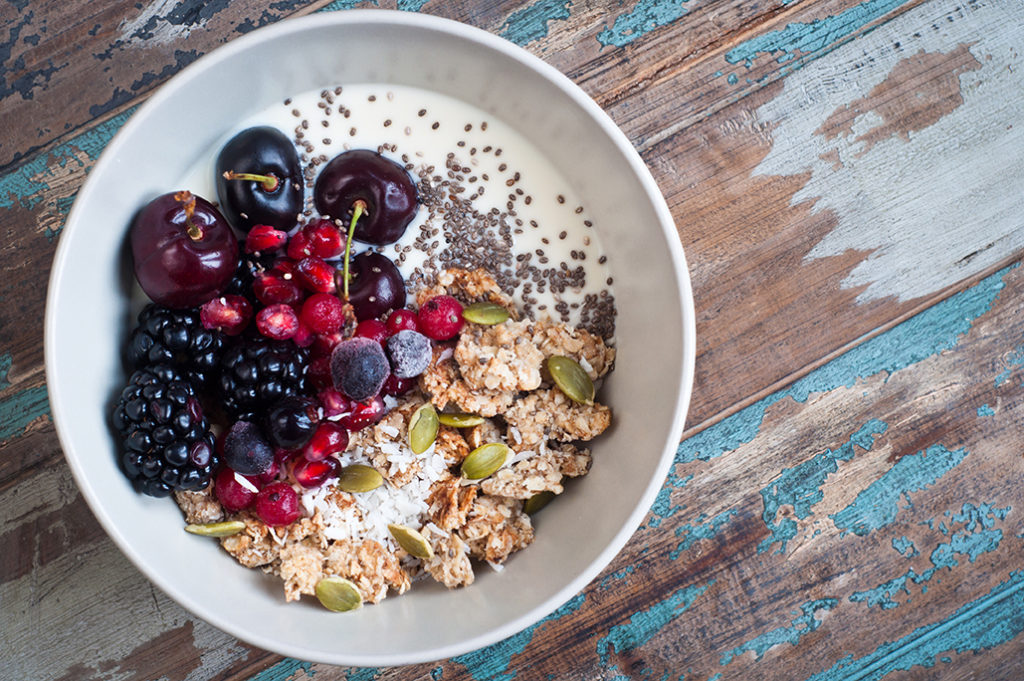
To get a fantastic boost of Omega 3 if you don’t eat fish, look for a seed mix including linseeds, sunflower and pumpkin seeds. They are also high in fibre and are perfect sprinkled on smashed avocado on toast. Sesame seeds are a very good source of calcium.
If you suffer from indigestion and heartburn during pregnancy, look for peppermint and ginger tea, which may help. Eat smaller meals, avoid fatty or spicy meals and caffeine and try not to eat close to bedtime. Learn to recognise the triggers that cause you problems and avoid them for now.
If you are low in iron, dark green leafy vegetables are a good source. Have with orange juice or a source of vitamin C to help absorption.
Morning sickness may mean your calorie intake diminishes. Keep some healthy snacks at home to give you energy and minimise sickness. Try Brazil nuts, pumpkin seeds or organic apricots. These are also great when you’re feeding, as you may just want a quick snack. Avoid energy bars that claim to be healthy but are packed with sugar!
Gourds are easy to digest and full of vitamins; carrots give you much-needed beta-carotene and potassium. Oats are full of fibre, B vitamins, calcium and iron. Great as porridge with skimmed or soya milk.
Bad news food
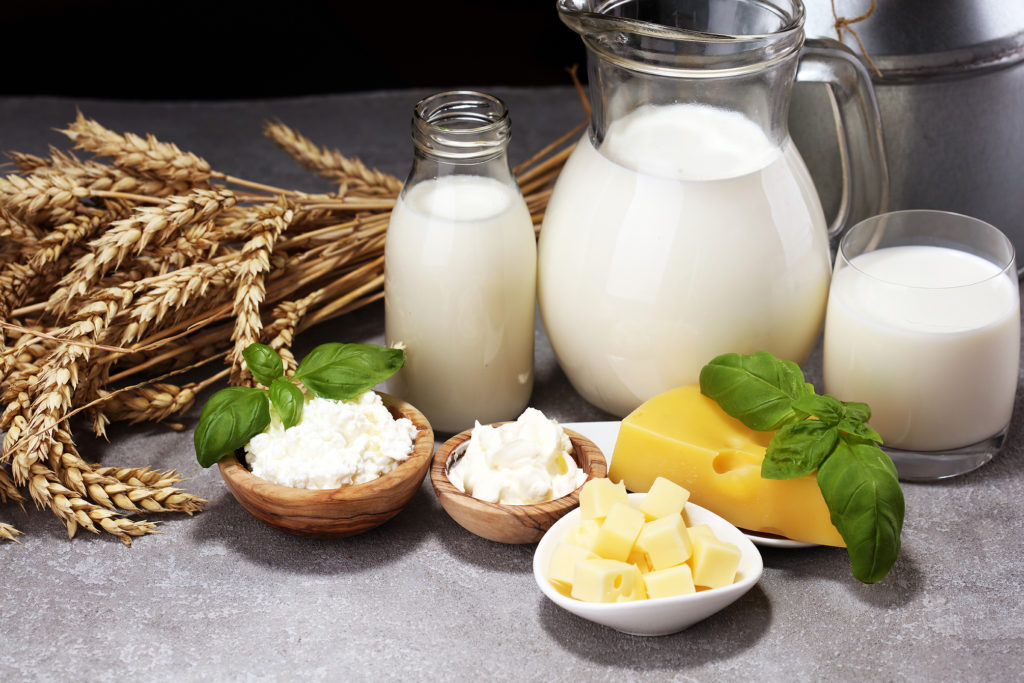
If baby develops colic, nappy rash, eczema or stomach pains, a food you’re eating while breastfeeding may be the culprit. Some babies are sensitive to protein in cow’s milk, so you may need to avoid dairy. Acidic food may cause skin problems. See a dietician to help spot triggers.
Take avoiding action

As with your pregnancy diet, there are things to avoid while breastfeeding.
- Alcohol will go straight into your milk supply; best avoided while feeding, or at least kept to a minimum.
- Prescribed drugs may affect your milk – always check anything prescribed for you or bought over the counter is suitable for breastfeeding mums.
- Caffeine; you may want to avoid. You know those jittery, heart-racing feelings you get from a strong espresso? Yes, they will pass on to your baby. Avoid, especially at night if you want your baby to sleep!
- Fish high in mercury should still be avoided – sad news if you love swordfish, marlin and shark.
- Some people say you should avoid spicy food and garlic while breastfeeding but this depends on your ‘usual’ diet. If you often eat strong flavours you’ll probably be fine and it may even help you introduce these flavours to your baby when you start to wean.
- You DO NOT need to avoid peanuts while breastfeeding unless you are allergic to them.
Try these juices and smoothies for a vitamin boost
Some simple, quick, nutition-packed boosters to try at home

Peach Mango Mania
Ingredients: 1 peach, half a mango, 1 tbsp natural live yoghurt, almond milk
Instructions: Take a stoned peach, place it in the blender with prepared mango, add some yoghurt (vegan if preferred) and top it all up with almond milk.
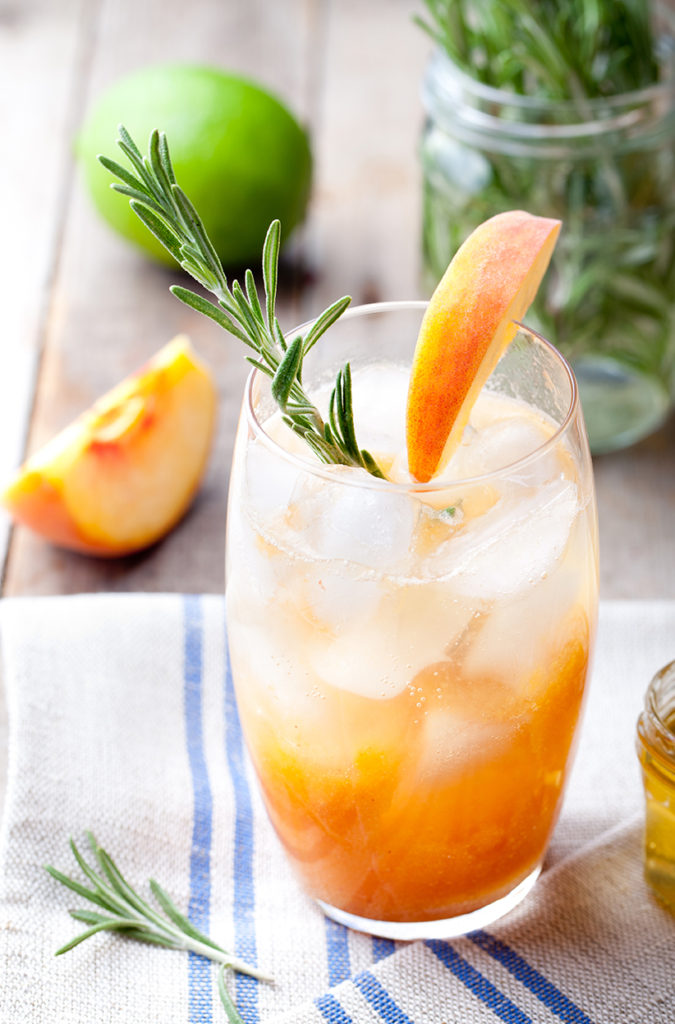
Agua Fresca
This Mexican-inspired drink is just blended water and fruit rather than juice. Experiment with different types of fruit but try watermelon, apple, lemon or orange, chopped, with their seeds and skins removed.
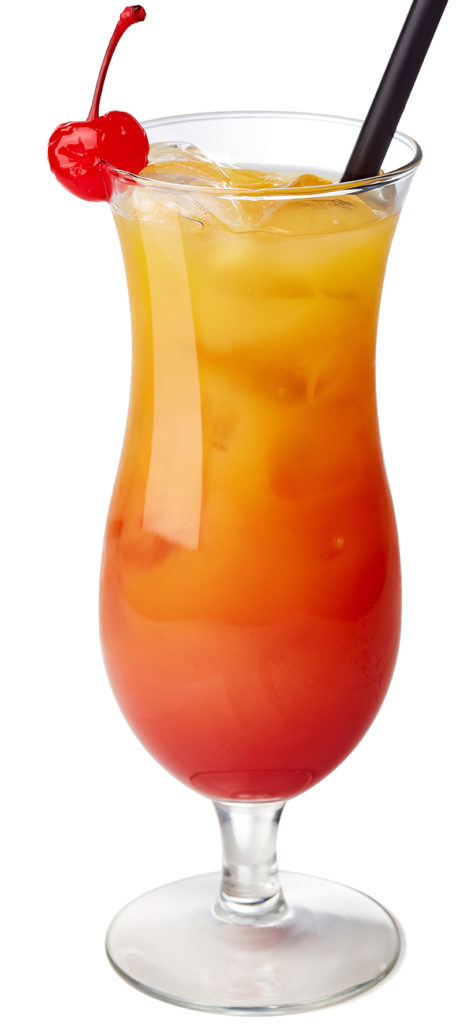
Carribbean Sunset
Ingredients: 150ml lemonade
or lime lemonade, 50ml orange juice, a dash of Grenadine, slices of lemon, orange and a cherry to garnish
Instructions: Put Grenadine in the bottom of a tall glass, add the orange juice, then slowly and gently top up with lemonade. You’ll have a sunset in a glass – and one of your five a day! Pop in a vacuum jug to keep it
fresh and cool.
